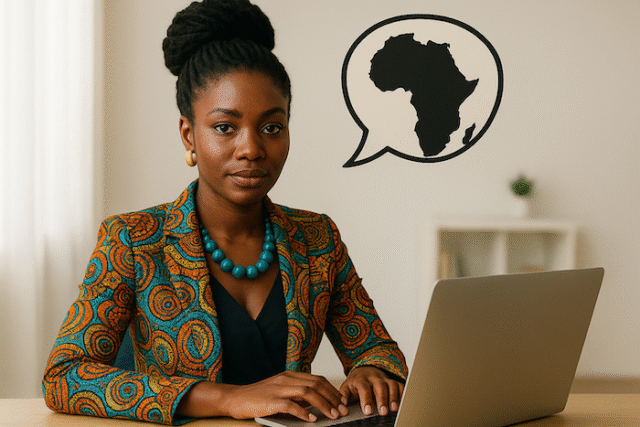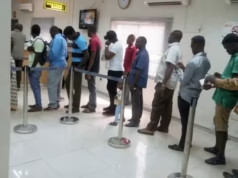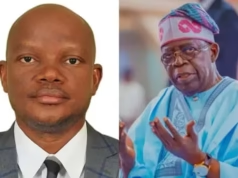Artificial Intelligence tools — think Siri, ChatGPT, Google Assistant — are nearly always trained on English, Chinese, or European tongues. African languages have rarely found their place in the digital realm. Yet for many Africans, speaking, learning, and interacting in their native language is second nature. When AI fails to understand them, or worse, does not include them, it’s not just a matter of convenience. It’s about culture, equity, and access.
Language itself carries identity. It holds history, wisdom, oral traditions, idioms, and culture-specific values. It’s how we express grief, joy, love, anger — all the things that make us human. When AI can’t grasp a language’s tones, dialectal variations, or how a word means something culturally unique, there’s risk: mistranslations, misunderstanding, and even exclusion.
For many African communities, large volumes of quality text and speech recordings simply do not exist in digital form. Schools, governments and media in many countries continue to prioritise colonial or global languages — English, French, Portuguese. That means fewer written records, fewer transcriptions, and fewer oral histories captured. The technical side is not easy either: creating good voice-recognition models depends not only on data, but on tools like keyboards adapted to special characters, spell-checkers, tokenisers, and tone marking. All these often work well for English or French, but poorly or not at all for Hausa, Igbo, Somali, isiZulu, Yoruba, and many others. When tools falter, so do opportunities: access to education, health information, public services, or even local news in one’s language.
The consequence? Millions of Africans remain spectators instead of participants in the AI revolution.
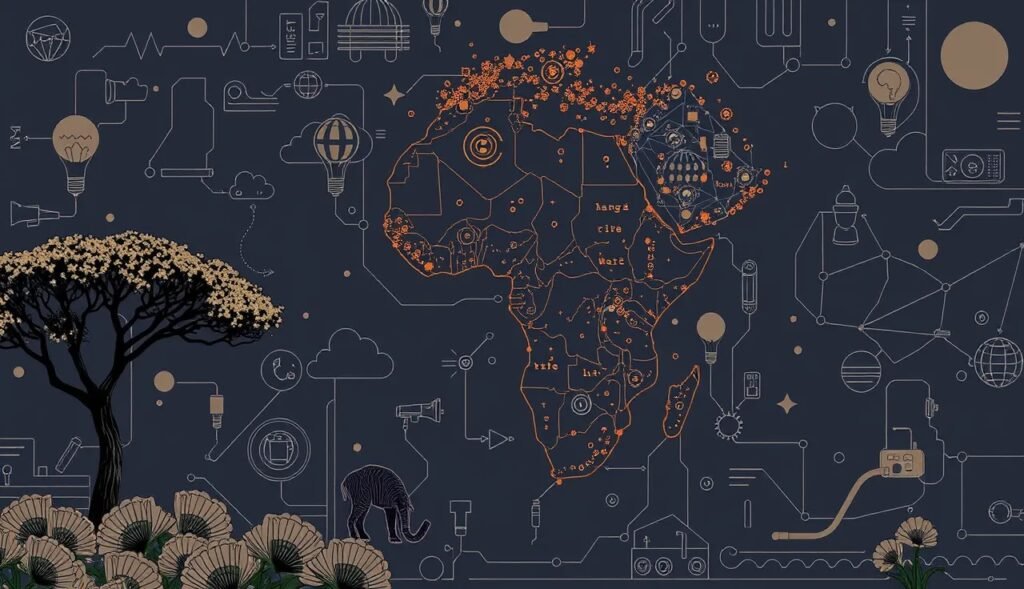
Table of Contents
The African Next Voices Project: What It Sets Out to Do
To address this gap, African Next Voices (ANV) has spent the past two years working to build something rarely seen: a massive, high-quality dataset of African languages designed specifically for AI applications. The initiative is largely funded by the Gates Foundation, with collaboration from Meta and many African universities and language institutions. Its ambition: make African languages visible — not just as academic curiosities or preservation projects, but as the active foundation for reliable, inclusive AI tools.
What exactly is being done under ANV?
- Automatic Speech Recognition (ASR) Data: Collecting voice recordings in many local African languages, both spontaneous speech and read text, from everyday life, health, agriculture, financial inclusion, to research settings.
- Diversity in speakers: Data comes from people of different ages, educational levels, and genders. That ensures the models built don’t just understand the “standard accent” but a realistic range of voices.
- Ethical standards: Every recording involves informed consent, fair compensation, and clear terms about who owns and can use the data. Transcriptions follow language-specific guidelines, and there are quality control steps built in.
They have multiple partner hubs in different countries:
- Kenya (through Maseno Centre for Applied AI) is collecting voice data in five languages: three Nilotic (Dholuo, Maasai, Kalenjin), one Cushitic (Somali) and one Bantu (Kikuyu).
- Nigeria (led by Data Science Nigeria) is focusing on five widely spoken languages: Bambara, Hausa, Igbo, Nigerian Pidgin, and Yoruba.
- South Africa (with Data Science for Social Impact and others) is recording seven official South African languages: isiZulu, isiXhosa, Sesotho, Sepedi, Setswana, isiNdebele, and Tshivenda.
These efforts build on earlier work by networks such as Masakhane, Lelapa AI, Mozilla Common Voice, EqualyzAI and others, which have been pushing for more resources, tools and community involvement in African language AI.

What This New Dataset Means: Impacts and Possibilities
What makes this project so important isn’t just the size, but how the data will be used, and by whom.
First, there’s the practical side. With good ASR models, it becomes easier to build voice assistants that understand local speech. Healthcare workers can speak in their native languages and have their words reliably transcribed. Farmers might use voice-based apps in their own tongue. Media can provide captions in local languages. Educational content can be produced more naturally. All of these bring genuinely inclusive experiences..
Second, there’s cultural preservation. Many languages are at risk of being lost or under-documented. This kind of data offers a way to archive stories, dialects, and local histories. Even dialectical variations — differences in pronunciation, word choice, tone — get preserved. That enriches the cultural record.
Third, fairness and safety. When models are trained only on major languages or only a subset of speakers, they tend to misinterpret what people say or fail to understand accents or tonal changes. Sometimes they produce harmful outputs. Including diverse languages reduces those risks. Users can trust that AI understands not just standardised speech, but natural, real speech.
Finally, this has economic and developmental implications. Tools adapted to local languages are more usable for small businesses, local governments, and non-profits. They can improve service delivery, transparency, and social inclusion. Also, once you have datasets, you can build further tools — automatic translation, language learning, and grammar checkers. This opens up whole ecosystems of tech in African languages.
Challenges Ahead and What Needs to Be Done
Even as this remarkable dataset grows, there remain serious challenges and questions about how to make a long-term impact.
- Coverage Gaps: Not all languages are yet included. Africa has thousands of languages; many remain under-recorded. The project must expand beyond its initial set.
- Dialect and Orthography Variability: Even within one language, many dialects, tonal differences, and alternative spellings can complicate data collection and model training. Consistency is hard to achieve.
- Compute Resources and Technical Capacity: Building, training, and deploying AI models requires computing power, specialised expertise, and long-term institutional support. Not all universities or language communities have those.
- Sustainability: After initial funding, how will such datasets be maintained, updated, and expanded? Who owns or has access to them? How are they licensed? How do we ensure ethical reuse of data?
What the project plan in response:
- They aim for small, efficient models tuned for the African context — so they are less resource-heavy but still accurate.
- Emphasis on benchmarking and reusability: data must be reliable, comparable, and usable by multiple research groups.
- Integration into actual platforms, not just academic experiments — so people can use AI in languages like Yoruba, Hausa, isiZulu in everyday tech.
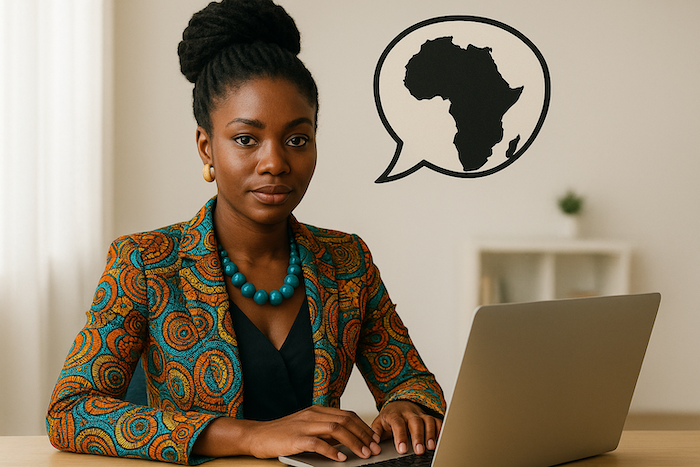
A Vision Where African Voices Shape AI
The hope is that this is not merely the start, but a turning point. That by collecting rich, ethically-sourced speech datasets and putting them to work, Africans can claim greater ownership of AI. The vision: a world where, when someone speaks in Igbo, Yoruba, Somali, isiZulu, or any of the thousands of African languages, AI doesn’t stumble or default to English. Instead, it listens, understands, responds — as if speaking with us in our own language, culture, idiom.
When that happens, technology becomes more than borrowed tools: it becomes something born from and grounded in Africa itself.
This is the project’s true promise. And the stakes are high, already tangible: for education, health, communication, culture, and economy. The work will be hard — data collection, tuning, funding, training, and even policy change. But the alternative — leaving so many voices unheard in AI’s future — is not acceptable.
If African languages are finally woven into the fabric of AI, then we haven’t simply caught up. We might lead in responsible, inclusive, culturally aware AI. The journey is just beginning — but what matters is that we’re on it.
Join Our Social Media Channels:
WhatsApp: NaijaEyes
Facebook: NaijaEyes
Twitter: NaijaEyes
Instagram: NaijaEyes
TikTok: NaijaEyes


